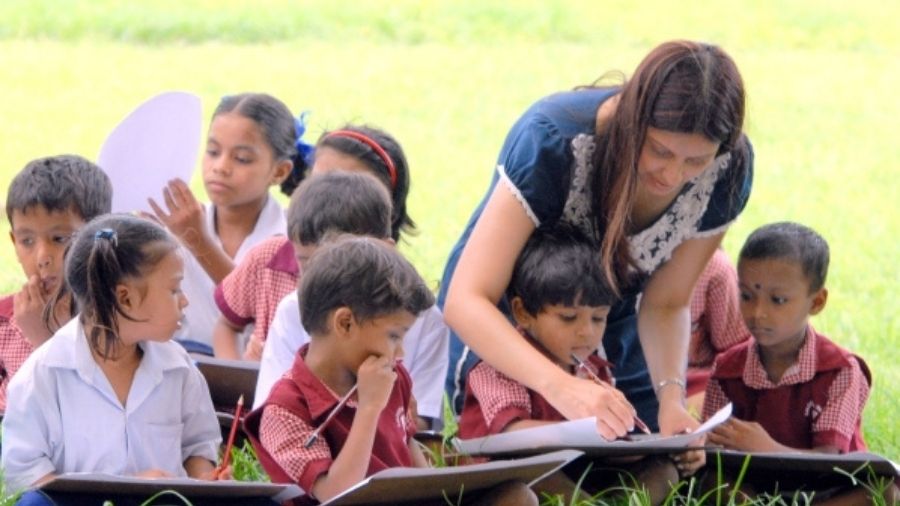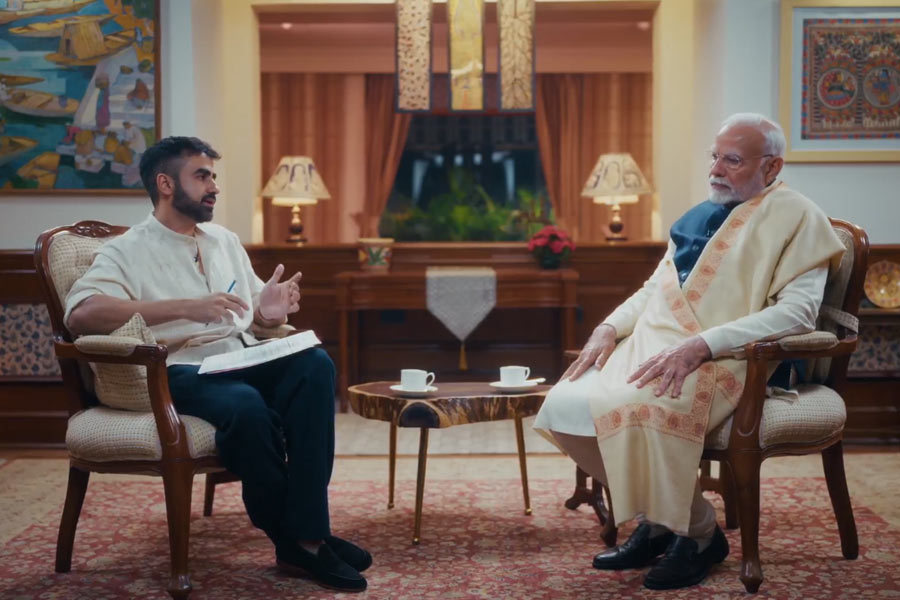Lost joy
Sir — Growing up, most of us were involved in different kinds of extra-curricular activities, such as painting, dancing or singing. This would not only provide us a way to engage with our peers beyond the school premises but would also broaden our exposure to the arts. However, the mounting pressure of academic excellence has taken away these sources of joy. Most children are expected to finish school and then attend study sessions with private tutors, leaving little room for anything else. Parents must understand that academics cannot replace the invaluable lessons garnered from practicing the arts.
Ananya Sen, Calcutta
Missed chance
Sir — The celebrated poll strategist, Prashant Kishor, has turned down the offer to join the Congress. Reportedly, Kishor was denied the opportunity to revamp the organizational structure, communications set-up and election strategy of the Grand Old Party (“Professional Prashant denied role of messiah”, April 27). The Congress must understand that it is essential for the party to restructure itself according to the changing political landscape of the country. Unfortunately, the Gandhi family seems to be oblivious to the party’s needs.
Jayanta Datta, Hooghly
Sir — It is surprising that Prashant Kishor thought he would get the chance to single-handedly transform the fortunes of the Congress. The party has a strict organizational structure. It is thus understandable that the Congress high command denied him a plump post. Kishor has made his career as an election strategist and has worked with several parties. But that is not enough for the Congress to put its complete faith in him.
Bidyut Kumar Chatterjee, Faridabad
New dawn
Sir — Elon Musk has announced that he is purchasing the social media giant, Twitter, for a whopping 44 billion dollars (“Musk in deal to buy Twitter”, April 26). This comes after weeks of speculation and hearsay surrounding the move with Musk insisting on the need for free speech on digital platforms. So far, Musk has shown that he is an astute businessman and is capable of bringing his visions to life. The common people are now waiting with bated breath to see how his ownership of Twitter transforms the user experience and tackles concerns around free speech.
Soham Das, Chandernagore
Sir — The change of ownership of Twitter from Jack Dorsey to Elon Musk will transform the publicly-listed company into a private firm. This is a massive change. Musk has repeatedly said that he wishes to ensure free speech. However, questions remain if he will be able to fulfil his claim. Twitter will have to navigate different censorship laws in each country. It will be a few months before we can gauge the impact of this takeover on free speech in India.
Somya Agrawal, Ujjain
Sir — As Elon Musk has admitted, censorship laws differ from one country to another and Twitter will have to abide by them. This will stand in the way of Musk’s commitment to free speech.
Rekha Mahato, Calcutta
In agreement
Sir — The first bench of the Madras High Court must be lauded for upholding the order of a single judge bench, which mandated that only sportspersons can be appointed as office-bearers to sporting associations and clubs in the country. This should not be restricted to sports. Religious places, too, should be free of political interference.
N. Mahadevan, Chennai
Heated city
Sir — Bengal is reeling under a heatwave. Last year, Calcutta recorded a maximum temperature of 39.7 degree Celsius. This year the temperature is already nearing the 40-degree mark. It is likely to get worse. The city is yet to see kalbaishakhis, which would bring relief to people during such scorching summers. Ultimately, it is human beings who are responsible for this crisis. Anthropogenic activities, such as the burning of fossil fuel, deforestation and livestock farming, have led to the steady increase in global temperatures. Unless governments as well as the common people undertake immediate measures to reduce emissions, the temperature would see a further spike. All countries should prioritize climate change.
Smarajit Basu, Calcutta
Parting shot
Sir — The disparity between rural and urban areas in India is massive. Around 65.07 per cent of the population still lives in rural areas. However, the pace of development in villages has been far slower than urban centres. Many people living in the villages lack access to basic amenities and suffer from extreme levels of hunger and poverty. The government must investigate if people are able to take full advantage of schemes aimed at poverty reduction. The villages of India are its heart and soul. The government must do its best to uplift rural India.
Anuskha Panwar, Ujjain











